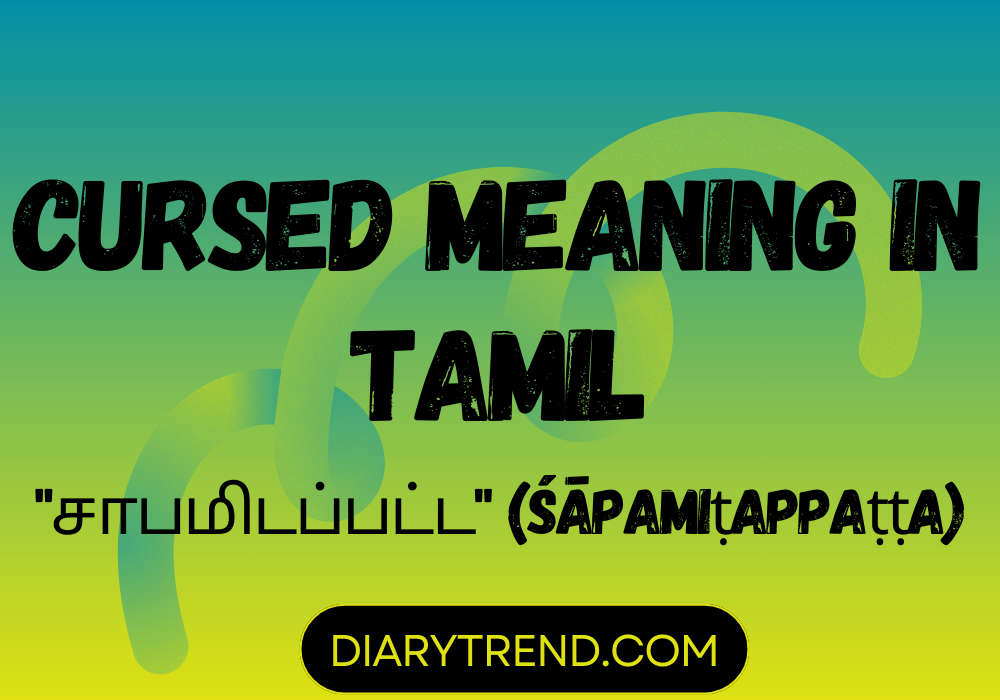The Tamil language, rich in its history and cultural depth, carries within it a myriad of words that encapsulate not just meanings but also the beliefs and traditions of its speakers. One such intriguing word is “சாபமிடப்பட்ட” (śāpamiṭappaṭṭa), translated as “cursed” in English. This term, steeped in cultural and spiritual connotations, offers a window into the Tamil worldview and its interaction with the mystical and the unknown.
Etymology and Usage
The word “சாபமிடப்பட்ட” is derived from “சாபம்” (śāpam), meaning a curse, and the suffix “-இடப்பட்ட” (-iṭappaṭṭa), indicating something that has been subjected to the action, in this case, cursed. In Tamil literature and folklore, the act of cursing is often associated with divine or supernatural powers. It is not merely a spoken word of ill-will but a potent spiritual transaction that can alter destinies and shape events.
Cultural Significance
In Tamil culture, the concept of a curse (சாபம்) is deeply intertwined with the notions of karma and divine justice. It’s often seen as a result of one’s actions that disturb the moral or cosmic balance. This belief is evident in ancient Tamil literature, religious texts, and folktales, where curses are both a narrative device and a moral lesson.
The use of curses in Tamil stories is often symbolic, representing the universal law of cause and effect. Characters in these stories, whether deities, sages, or ordinary humans, face the repercussions of their actions through the manifestation of curses. These narratives serve as cautionary tales, underscoring the importance of righteous living and the respect for cosmic laws.
Modern Interpretation
In contemporary Tamil society, while the literal belief in curses may have diminished, the figurative use of “சாபமிடப்பட்ட” remains prevalent. It’s often used to describe situations or individuals facing a series of misfortunes, seemingly without any logical explanation. This modern usage reflects a cultural memory and a way of articulating the unexplainable through the lens of traditional beliefs.
Conclusion
The word “சாபமிடப்பட்ட” in Tamil is more than just a translation of “cursed.” It embodies a rich tapestry of cultural beliefs, spiritual understanding, and a unique worldview that sees the world as an interplay of moral actions and their inevitable consequences. Whether in ancient tales or in the modern lexicon, it reminds us of the enduring influence of cultural heritage in shaping language and thought.
